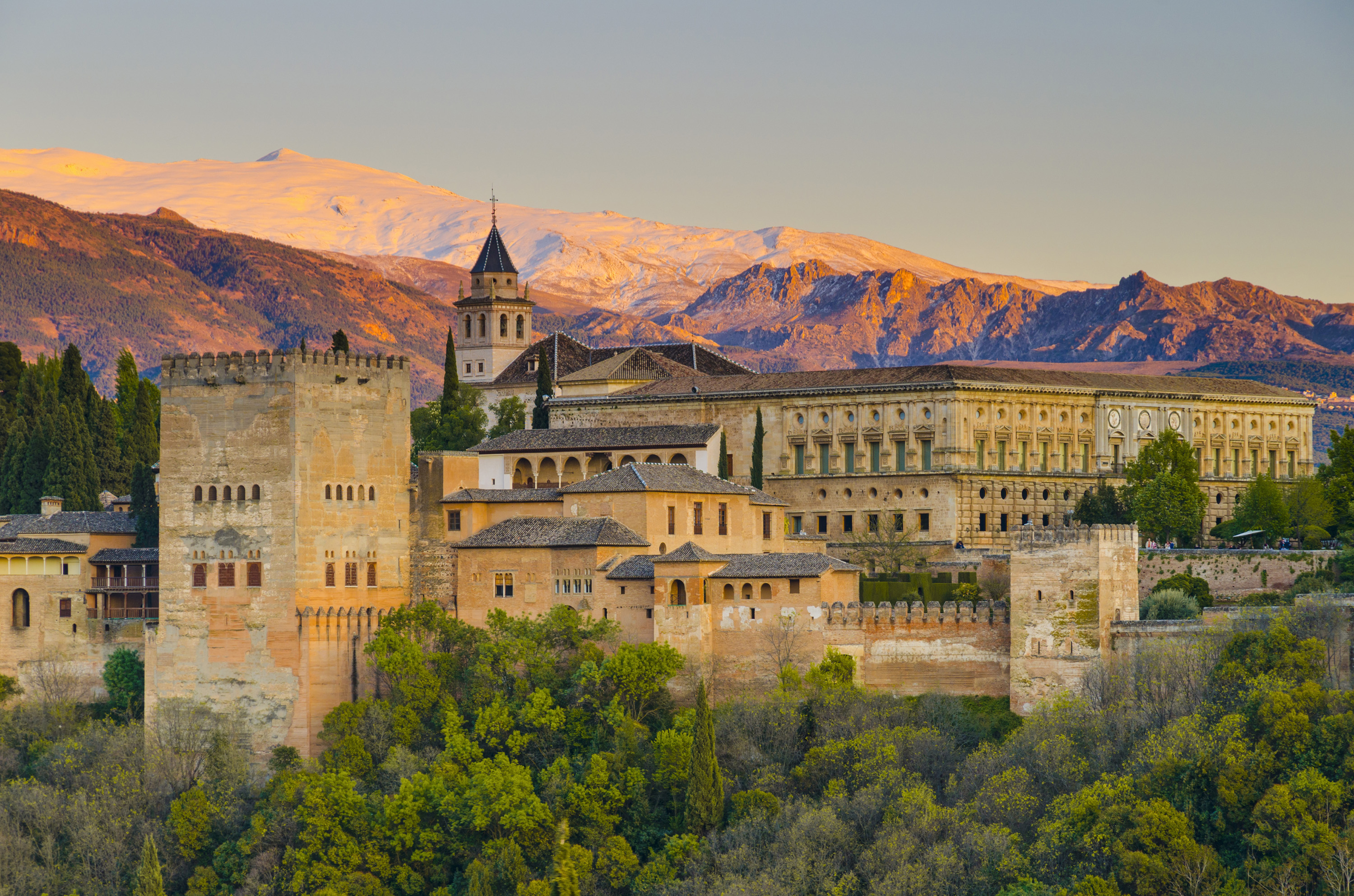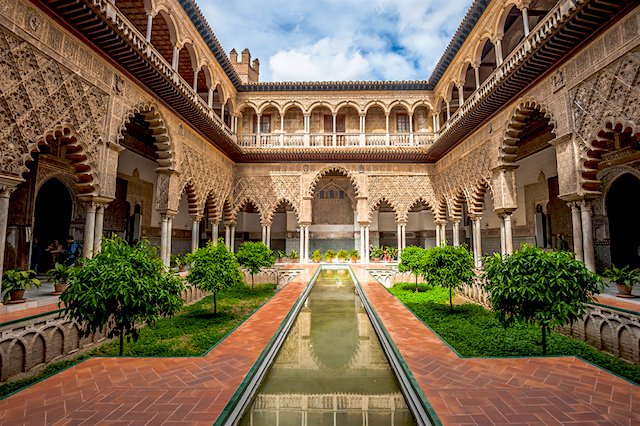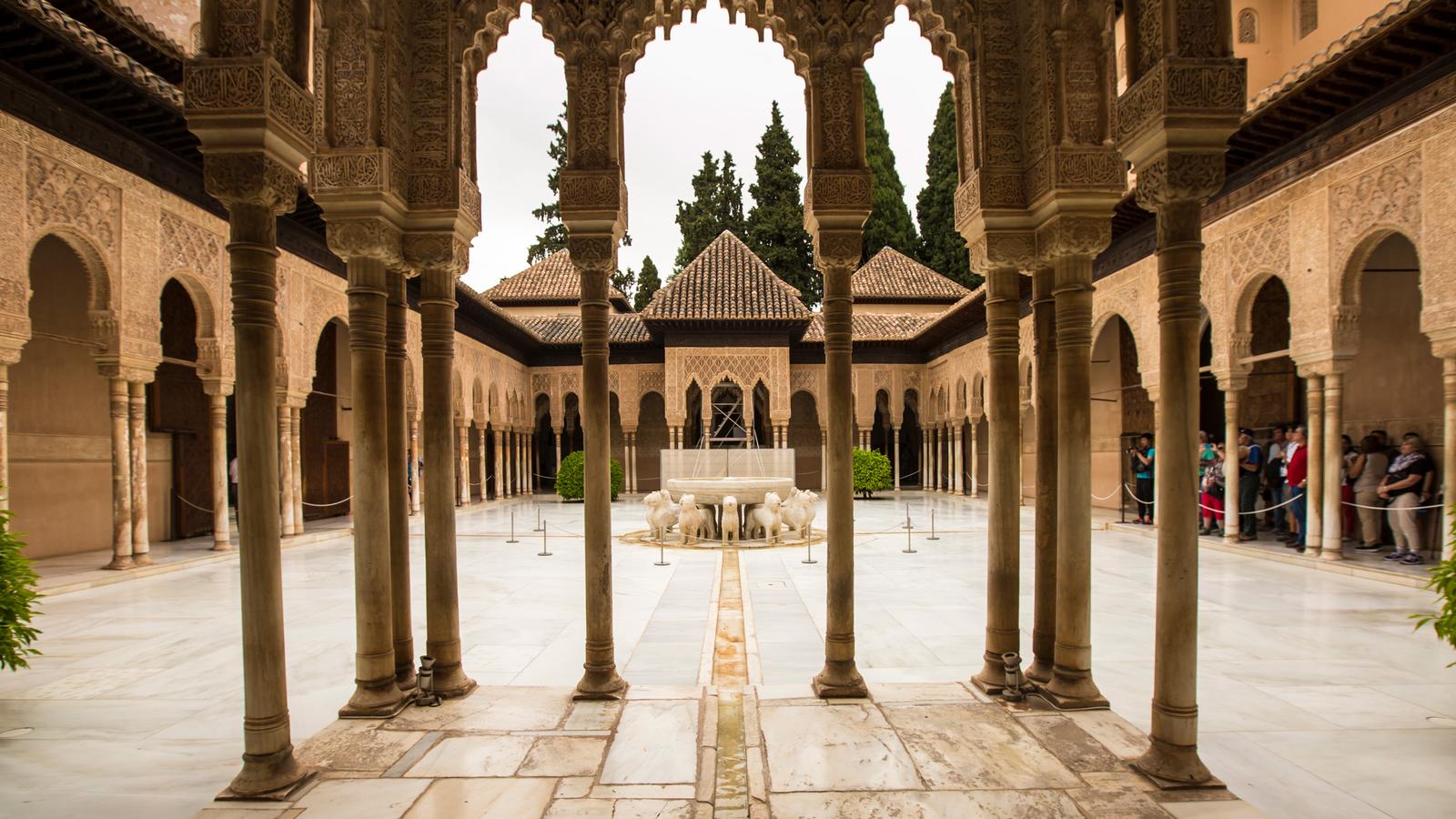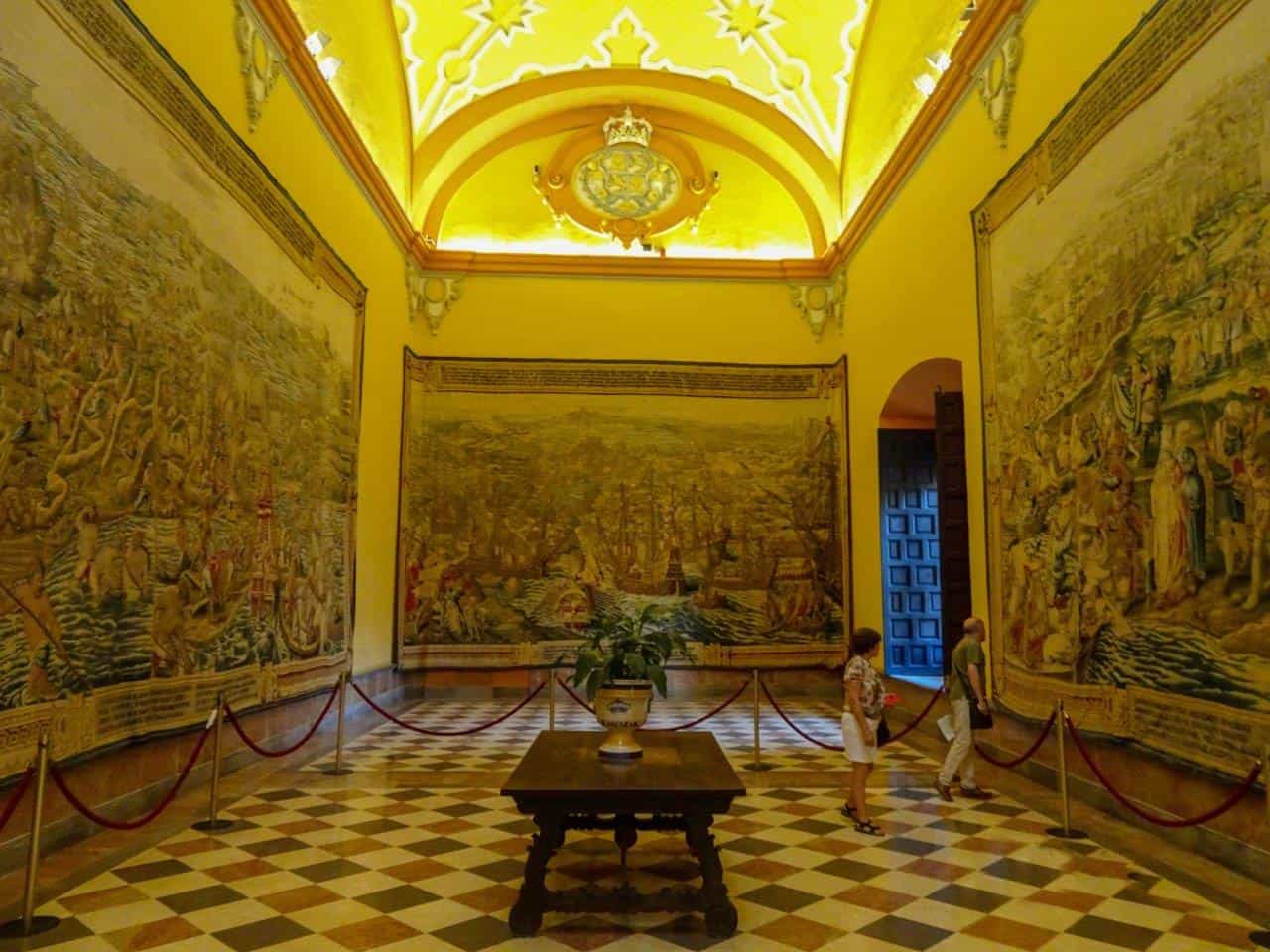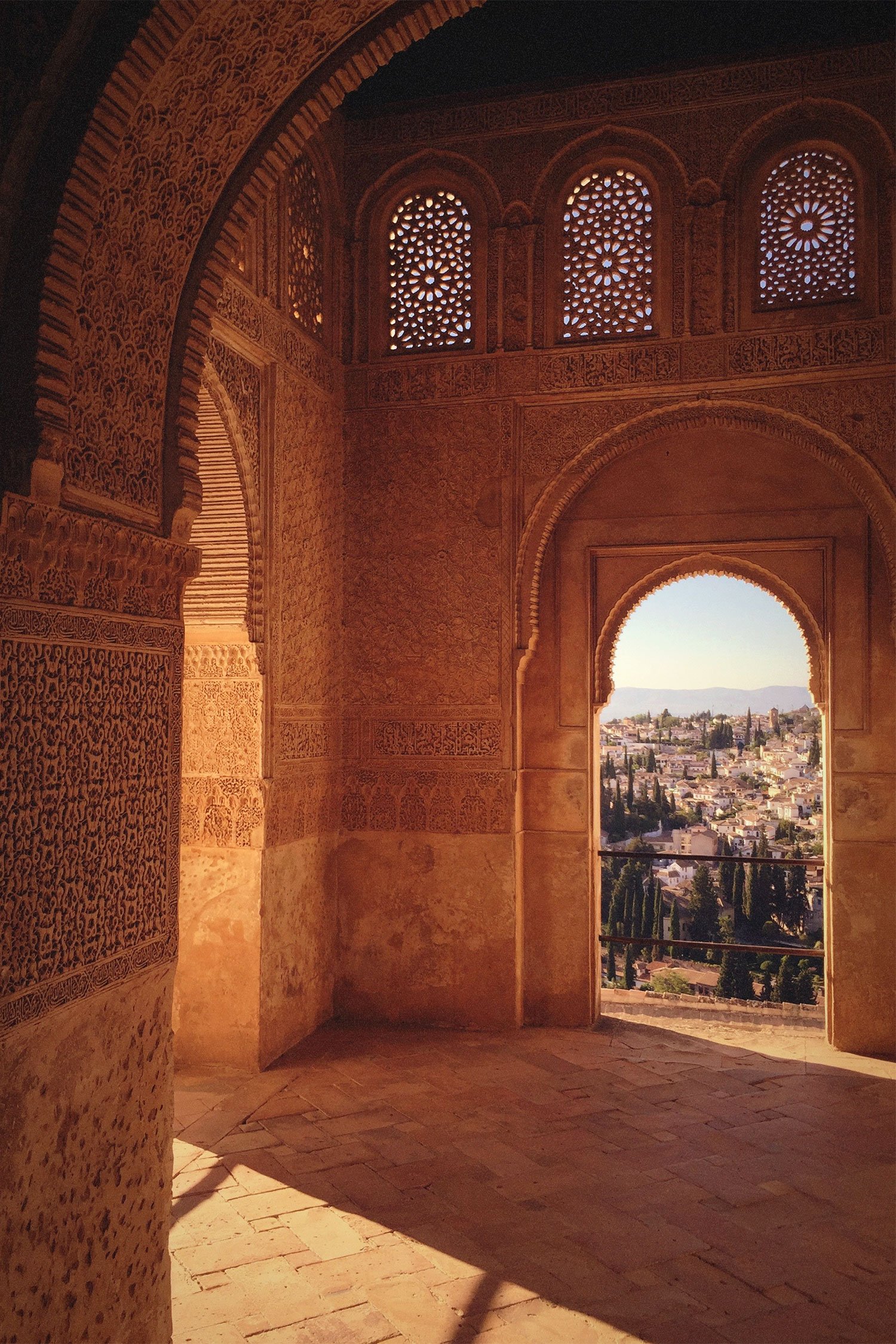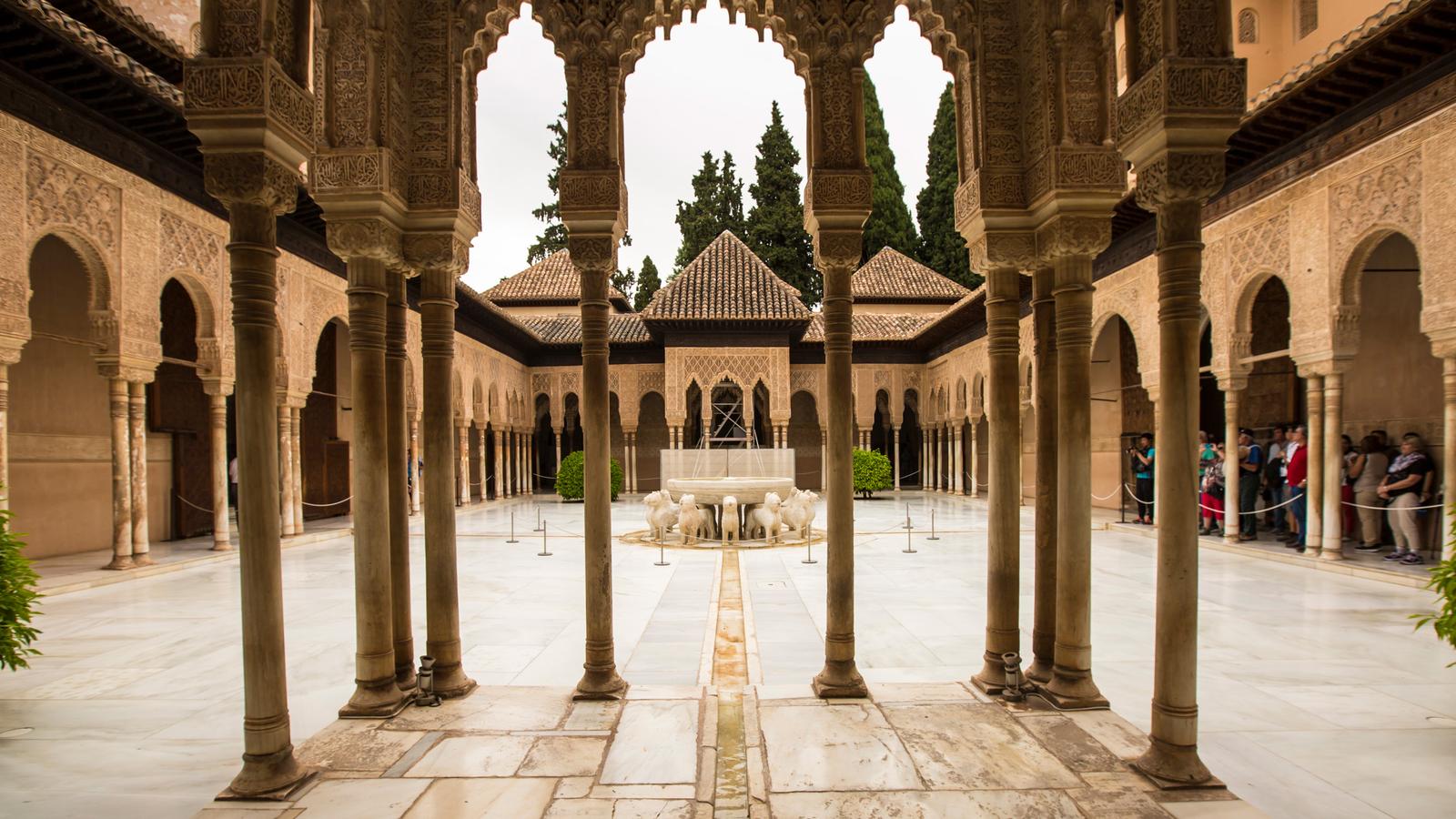The Great Legacy of Moorish Culture on the Iberian Peninsula
The Impact of the Moors in Spain
by maddiebuckingham
It remains evident today that the period of Moorish rule, particularly in the region of Andalucía, has profoundly impacted Spain as a nation. The Moors, who derived largely from Arabia and Northern Africa, ruled huge swathes of Southern Spain for seven centuries, and had a widening impact on Spanish culture. The Muslim rule of Medieval Iberia (modern-day Spain) has heavily influenced Spain’s language, intellectual culture, and architecture. Although, the peace which existed at the beginning of the reign became increasingly challenged by the crusading Christian invaders. This blog will go on to demonstrate the lasting elements of the Islamic culture on Medieval Spain.
Religious tolerance
During their long reign over a large part of medieval Iberia, the Muslims were known to be a rather accepting group, tolerating and welcoming Jews who had been made outcasts by the ‘…northern invaders…’ of Spain. Indeed, one source suggests that the Jews were so highly valued by the Moors that they became ‘…merchants and ambassadors and were often taken into the leaders’ confidence.’ Islamic rule in Spain from the early eighth to the late fifteenth century featured ‘…a multi-cultural mix of the people of three great monotheistic religions: Muslims, Christians, and Jews.’ Furthermore, it is implied, that despite the restrictions imposed on Jews and Christians, such as higher taxes, this overall unity of the three faiths became an immensely successful settlement, ‘…that matched the heights of the Roman Empire and the Italian Renaissance.’ What is more, Blockmans argues that ‘…of course, there was a shrinking Christian majority who, like the Jews, were also treated with reasonable tolerance by the new rulers.’ It is not clear why the Christians were treated so well by the Muslim settlers, but Blockmans suggests that the Jews welcomed Islamic rule after being oppressed by the Christian Visigoth settlers. However, the centuries leading up to the taking over of Spain by the Catholic monarchs, Ferdinand and Isabella, were not free from wars, even, it seems, amongst the Moors themselves. Although, the events of post 1492, when the last of the Muslim kingdoms in Spain was claimed by the Christian crusaders, certainly highlight the acceptance of the Muslim leaders, as opposed to the persecution of the Christian Inquisition.
Language
Although it is often assumed that the language of Spain derives from Latin alone, closer inspection of many words also reveals Arabic roots. Indeed, it has been argued that; ‘More than 4,000 words of Arabic origin are used in modern Spanish.’ Examples include words beginning with al, such as álgebra (algebra) or Allá (Allah) and other words relating to scientific or mathematical knowledge, as well as exotic words like azúcar (sugar). MacKay also points out that: ‘In the late 1940s …poetic fragments were discovered which, dating back to the tenth century, were composed in Mozarabic – that is, the dialect of Spanish which was spoken in al-Andalus.’ and goes on to emphasise the significance of Arabic poetry in al-Andalus during the Middle Ages. The effect on modern-day Spain is that even some existing place names also derive from Arabic.
Architecture
The architectural influence of the Moors remains perhaps the most recognisable in modern-day Spain, since it has remained largely untouched for several hundred years. MacKay argues that; ‘…the fact that the Mudejars virtually monopolised the crafts associated with building and ornamentation meant that they left their imprint on buildings all over Christian Spain.’ Indeed: ‘Moorish architecture can be found throughout Spain, with its slender columns, horseshoe arches, cupolas, and airy, colorful buildings.’ An example of a Moorish building (later altered after the Reconquista) is the Alcázar (palace) of Seville, which is believed to date back to the tenth century.
Learning/Knowledge
The following book review by Titus Burckhardt entitled ‘Moorish Culture in Spain’ is a great demonstration of just how brilliantly influential the Moorish reign of medieval Iberia was upon the nation:
‘The Arab contribution to human progress—astronomy, mathematics, cosmology, the variety and magnificent wealth of architectural form—is a remarkable legacy of a people who entered the land as conquerors and became peaceful masters. From the establishment of the first mosque in Cordova in 785 until the time of their expulsion by the Catholic kings in 1492, the Moors dominated the intellectual life of the area and had a profound impact on European civilization, which assimilated many of their ideas.’ Indeed, it seems that MacKay is more than justified in saying that ‘…the Islamic world improved a scientific tradition of which Latin Europe was largely ignorant.’ Therefore, it can be argued that without the Islamic conquest of Spain, Europe may have remained ignorant of a great many things.
Overall, it is clear that ‘Islam was a bridging civilisation.’ and became ‘…a transmitter of culture to Europe. Islam also provided a cultural bridge linking Latin Europe with certain aspects of its Greco-Roman past…’ and can even be linked to the argument about the impact of the Islamic language. As MacKay explains how the majority of the scholarship supplied by the Moorish leaders, such as the learning of Greek science and philosophy, was ‘…within an Islamic and Arabic-language setting.’
In conclusion, for the majority of their period of rule, the Moors profoundly impacted the culture of Medieval Spain much of which remains recognisable today. However, this is, to some extent, overshadowed by the gradual process of the Christian Reconquista. Although, it can be argued that Muslim influence was good for Spain as it modernised knowledge/learning in Europe and encouraged a wider cultural awareness through its introduction of different architectural designs, style of religion and language structure. Finally, although the Moorish leaders no longer rule over Spain, the fact that they did so for seven hundred years is, alone, sufficient grounds for their success. Indeed the end was only an inevitable part of their rule, as it is for the existence of any Empire or regime.
Bibliography
Angus MacKay, Spain in the Middle Ages: From Frontier to Empire, 1000-1500 (Hampshire, 1977), pp 82, 83, 91 & 201
W.I. M. Blockmans and Peter Hoppenbrouwers, Introduction to Medieval Europe 300-
1550 (Abingdon, Oxon, 2010), p 102
http://www.bbc.co.uk/religion/religions/islam/history/spain_1.shtml
http://www.esotericquest.org/suggestedreading.html
http://www.medieval-life.net/medieval_history_spain.htm
http://www.patronato-alcazarsevilla.es/imagenes/flash/ingles/evolucion/evolucion.htm
http://spanish.about.com/cs/historyofspanish/a/arabicwords.htm
Architectural Photo-documentary
___
https://wuhstry.wordpress.com/2011/07/20/the-impact-of-the-moors-in-spain/
